Low Sugar Weight Loss Diet
What Is A No-Sugar Diet?
The no-sugar diet, also known as a sugar-free diet, involves reducing or completely excluding simple carbohydrates and added sugar from your diet. First of all, the elimination of added sugar is a very healthy and life-transforming decision. Research shows that reducing sugar intake by even 20% could save many Americans from early death, disease, or disability, and save more than $10 billion in medical costs (6).
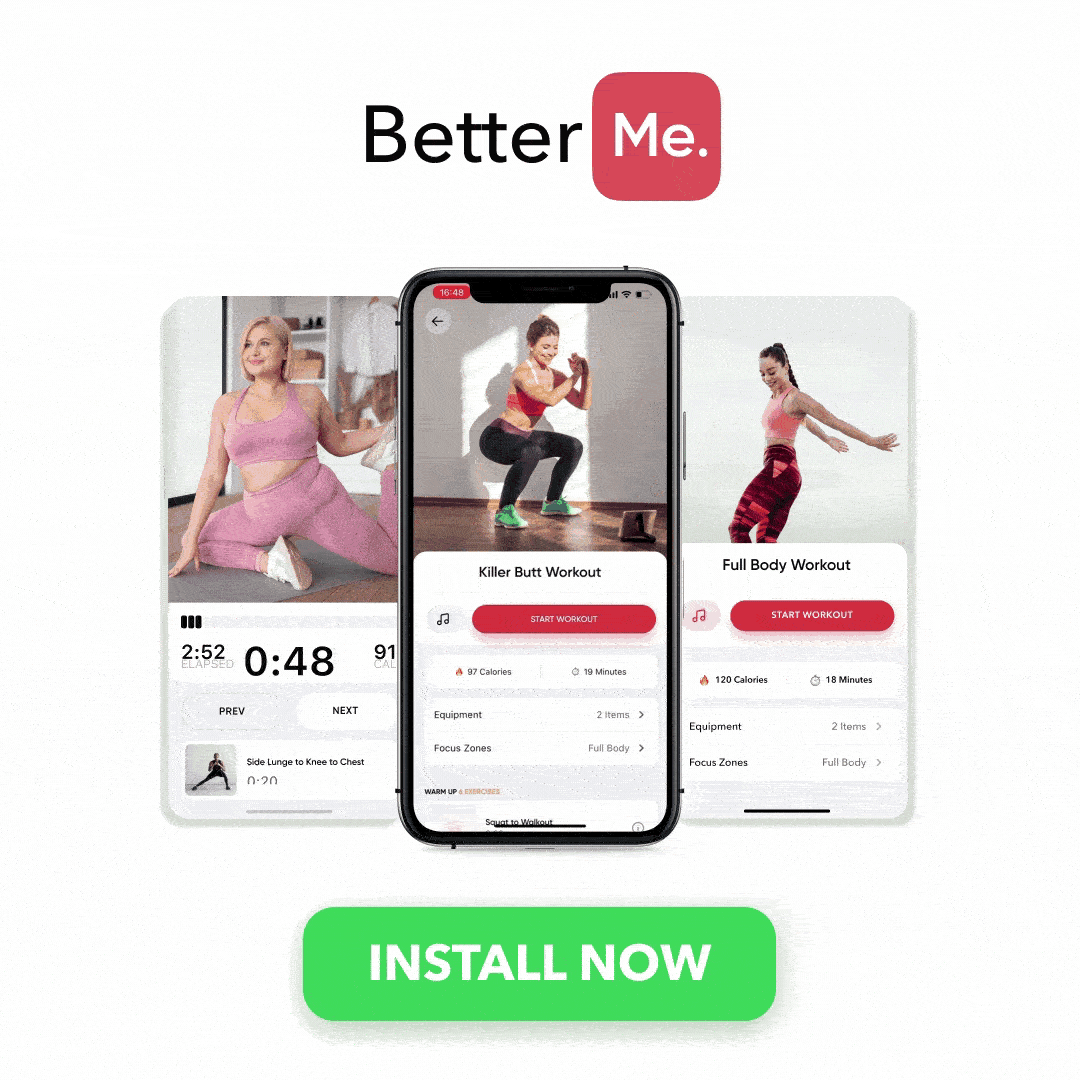
The no-sugar diet has become extremely popular in the past few years. For this reason, more and more people are looking for an effective way to get back on track, slim down and stay health-conscious. Most people are aware of the sweet danger of sugar, therefore they try to decrease their daily sugar intake, although many give up in the process.
Why Cut Out Sugar?
The USDA now recommends less than 10% of total calories from added sugar according to the 2015-2020 Dietary Guidelines for Americans. (7). A review in the Journal of the American Medical Association shows that added sugar can increase the risk of cardiovascular disease (1). Moreover, it can lead to such health conditions as:
- diabetes
- obesity
- high blood pressure
- high cholesterol
- type 2 diabetes
- metabolic syndrome
- chronic inflammation
- dental plaque and cavity
Reducing sugar intake can promote weight loss and significantly decrease the possibility of contracting the abovementioned diseases. It's highly recommended to replace foods that contain sugar with healthy options to get all the essential vitamins and minerals without going overboard on calories.
Whether you're a workout beast or just a beginner making your first foray into the world of fitness and dieting – BetterMe has a lot to offer to both newbies and experts! Install the app and experience the versatility first-hand!

Are No – Sugar Diets Healthy?
Studies show that reducing sugar intake while following a healthy nutrition plan has plenty of health benefits. For instance, it can help people:
- lose weight and prevent obesity (3)
- have clearer skin and reduce the risk of skin cancer (2)
- prevent mood swings (9)
- reduce inflammation (4)
- reduce the risk of type 2 diabetes (5)
What Does A No – Sugar Diet Do To Your Body?
Apart from the indicated health benefits, a low sugar diet can help:
- reduce hunger pangs and cravings
- boost energy levels
- enhance mental clarity
- improve appearance
- improve dental health
- increase longevity
- improve sleep
- reduce anxiety
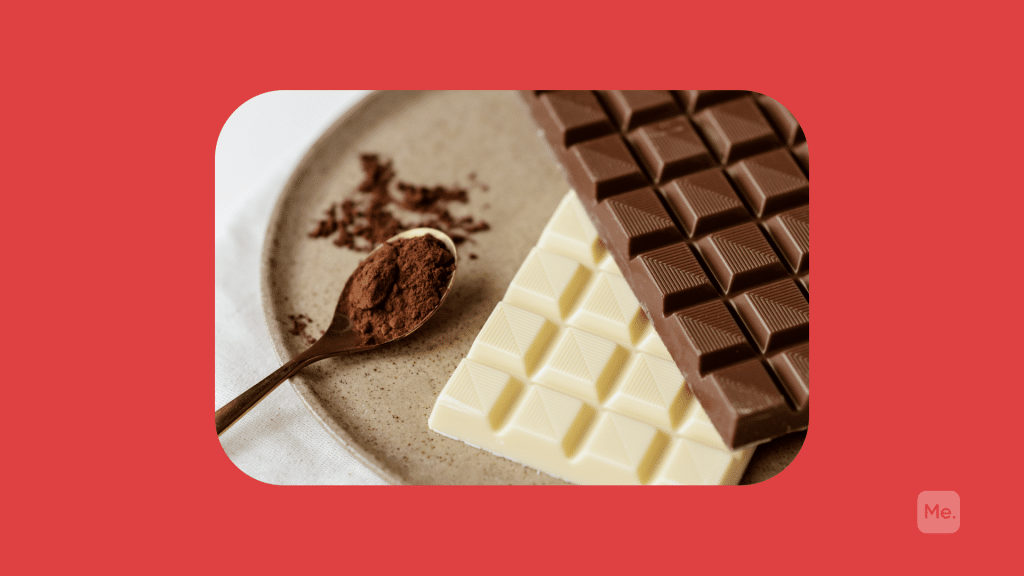
How To Start A No – Sugar Diet?
It's quite hard to change your lifestyle in one day. That's why it's much better to start a diet gradually to get used to a new eating pattern. One of the biggest challenges people face being on a no sugar diet is a constant craving for unhealthy foods and sugar. Here are a few tips on how to start a no sugar diet correctly:
- First of all, try to limit your sugar consumption for the first few weeks instead of completely eliminating it from your diet. It will help you adapt to a new low-sugar lifestyle and will reduce your sugar cravings. You may try making a plan to gradually reduce your added sugar intake and try to follow it. Don't give up if you fell off the wagon and ate a sugary snack once. It's totally normal. Pick yourself up and get right back in the saddle!
- Your diet can include natural sugars, like fruits, to get essential nutrients and fiber. Some fruits may contain more sugar than others, but that's okay – you consume the lion's share of sugar from processed foods. Chances are, you won't need to pay much attention to the sugar content of fruits on a no-sugar diet to successfully lose weight and improve your health markers.
- Cut back on simple carbs. The most convenient way to start reducing your sugar intake is to exclude added sugars, especially since they are the most harmful for your health overall. However, there is another type of sugar you should keep to a minimum while sticking to the no-sugar diet. Those are simple carbohydrates found in white bread and white flour, white pasta, and white rice. The problem with these carbs is that they quickly convert to sugar in your body and cause blood sugar spikes. Try to replace simple carbohydrates in your no-sugar diet with complex ones – for example, brown rice is a great substitute for white rice, and whole grain bread is a healthier alternative to the white one.
- Provided that you can't resist the temptation and want to eat something sweet, do it when you are in a good mood.
- Make sure not to eat sugar when you are worn out, depressed or stressed out in order to avoid creating an emotional bond to sweets. Emotional eating is one of the most common issues out there and it is a remarkably difficult habit to break. Try to break this habit while sticking to the no-sugar diet. First, you can keep a food journal, replace unhealthy snacks with the healthier ones, and try to manage stress through yoga and meditation. However, this may not be enough, and you will have to deal with unpleasant consequences like binge eating. Try to work through your issues with a therapist to develop more productive coping mechanisms if self-help doesn't work well for you.
- Eat full-fat foods. Most people think fat is bad and try to cut back on fat along with sugar. The problem is low-fat foods often contain higher amounts of sugar. For example, low-fat yogurt can contain more than four times the sugar of a full-fat yogurt. So choose full fat foods whenever possible. Of course, don't forget to look at the label and the calorie content: the amount of sugar in a full-fat product may be too high for your no-sugar diet as well.
- Eat more protein. High-fat and high-protein diets reduce hunger and food intake, while diets high in added sugar increase hunger. You consume a ton of calories and you still want to eat. To keep your no-sugar diet successful and enjoyable, consume significant amounts of healthy proteins such as fish or tofu. Good fats like olive oil and avocado can also help you reduce hunger cravings and succeed in losing those extra pounds.
- Try to make more changes to your diet so as to reduce your sugar intake after the adaptation period.
Foods To Avoid On A No-Sugar Diet
- breakfast pastries (muffins, coffee cake)
- baked goods (cookies, cakes)
- ice cream and sorbet
- baked beans
- crackers
- tacos
- boxed rice
- frozen entrees
- grains (bread, rice, and pasta)
- processed foods
- anything with added sugar on the nutrition facts label or sugar listed in the ingredients list
Drinks To Avoid
- soda
- fruit juices
- flavored coffee, milk, tea
- hot chocolate
- tonic water
- cocktails
- liqueurs
- any other sugar-sweetened beverage
As you can see, no-sugar diet is not overly restrictive and can help you significantly reduce your calorie intake and lose those extra pounds. Keep in mind, however, that you can consume extra calories even on a no-sugar diet. The recommended daily calorie intake is about 2000 calories for adult women, and about 2500 calories for men. However the number of calories burned per day varies for each person. You can calculate how many calories you burn and, accordingly, which calorie limit is right for you, by using this calories burned calculator. Don't fall into the trap of extreme calorie restriction – those diets work against you, depriving you of essential nutrients and decreasing metabolism, so that you literally tend to gain weight instead of losing it.
Some Tips On How To Survive No-Sugar Diet
- Firstly, add fresh fruits or dried fruit to your cereal or oatmeal instead of adding sugar. Adding fruits can make your breakfast much more delicious thanks to their sweet flavor and excellent taste. Another great option for making your oatmeal more appetizing is nuts. Hazelnuts, almonds, cashews contain a huge amount of nutrients, protein, and essential omega-3 fatty acids. When thinking about what to make for breakfast on a no-sugar diet, don't fall into the breakfast cereal trap: most granolas and breakfast cereals advertised as "healthy" are high in sugar. So, it is a much safer bet to cook cereals by yourself.
- Secondly, use extracts like almond, vanilla, orange or lemon instead of adding sugar. I f you're having a hard time giving up the sweetness, but fruits and extracts aren't enough to tame your cravings, some sweeteners can help you. For example, stevia has virtually no calories and has a positive effect on blood sugar levels in people with diabetes. Lesser known but also acceptable options are erythritol and xylitol. These are natural, low-calorie sweeteners extracted from fruits. In general, however, it would be best to make sweeteners your temporary rather than permanent solution for your no-sugar diet.
- Thirdly, if you're tired of drinking plain water, tea and sugar-free coffee on a no-sugar diet, try making lemon water. This is a very simple and healthy drink that will refresh your morning and set you up for a wonderful new day. You can also add mint and cucumber to your water. It's worth noting that people often substitute juices for unhealthy sodas. This is not the best solution if your goal is to reduce your sugar intake. While juices certainly contain healthy vitamins, they are high in sugar and still don't give you the feeling of fullness, unlike fresh fruits.
- Try mindful eating. Sugar cravings can be really harsh, and sometimes the whole approach to eating has to be changed. Mindful eating is a subdivision of mindfulness meditation, and includes a number of practices designed to enrich your relationship with food, and let you enjoy the taste slowly and carefully. The main goal of mindful eating is regaining control over your eating patterns by combating emotional overeating and eating out of boredom. As a consequence, mindful eating practices help you shed your pounds and support your efforts to stick to a no-sugar diet.
- And finally, add spices like ginger or cinnamon to your foods instead of sugar.
Keep In Mind
- Read the food labels carefully, compare them and choose products with the lowest content of added sugars.
- Sugar is often measured in grams on labels, 4 g is equal to 1 teaspoon.
- Fruits come without the food label on the market, so look up the nutritional info online.
Dropping pounds by the dozens without putting yourself through the wringer is everyone's weight loss pipe dream. But what if we told you that the BetterMe app can make that happen? Keep yourself in prime shape with our fat-blasting workouts, delicious budget-sparing recipes, and body-transforming challenges with our app!
Code Names For Sugar
Although it may seem to be really simple to eliminate all added sugar from your diet, manufacturers use secret code words for added sugar and it can be in foods you don't expect it to be. It's important to learn the code names for sugar to remove it from your diet. There are plenty of secret words for sugar, here are some of the most common ones:
- sucrose
- maltose
- sugar cane
- corn sugar
- honey
- fruit concentrate
- juice of white grapes
- agave
- caramel
- cane juice
- ethyl maltol
- fructose
- glucose
- syrups: maple, rice, corn, malt, golden, buttered syrups
- sugar: beet, brown, can, castor, coconut, date, grape, yellow, raw, palm, maple, powdered, invert sugar
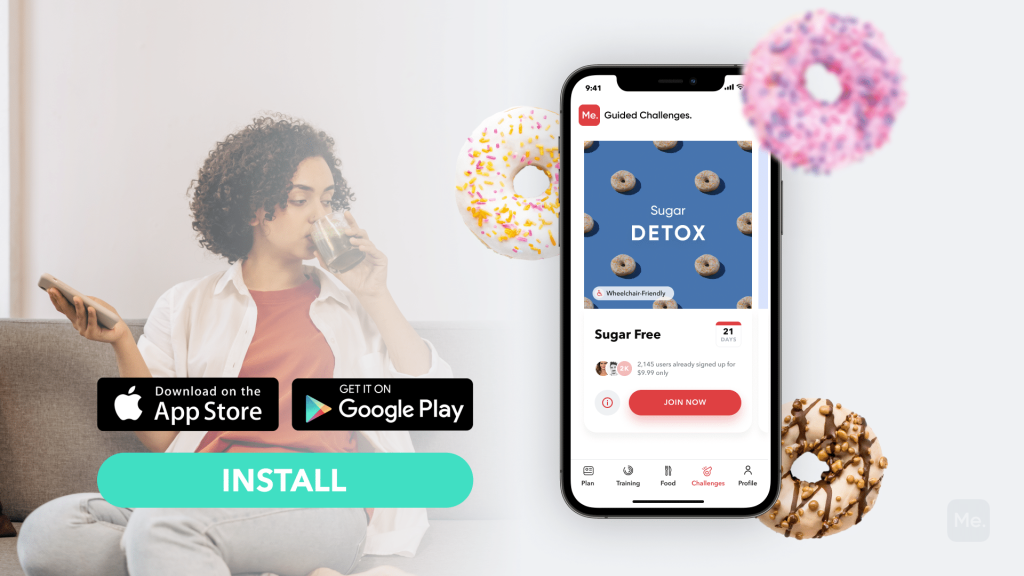
What To Eat On A No-Sugar Diet?
The USDA recommends eating a well-balanced diet including fruits, grains, legumes, whole grains, vegetables, protein, and dairy products. In addition, it's advised to limit added sugar to no more than 10 % of daily calories (8).
It's important to include whole foods into your ration to get all essential nutrients, vitamins and minerals. Many vegetables and foods like meats, fish, eggs, cheeses, avocados are sugar-free. Therefore, they are always a safe option when you are hungry.
Low-Sugar Diet Food List (No Added Sugar)
Here is a short list of sugar-free foods that can be included in your diet:
- avocado, coconut, olive oils
- butter
- beef, chicken, pork
- eggplant
- fish
- green beans
- kelp noodles
- zucchini noodles
- mushrooms
- spinach
- watercress
- radish
- kale
- celery
- broccoli
- bell pepper
- cucumber
- asparagus
- tomato
- mustard
- salsa
- coffee
- tea
- watermelon
- lemons/limes
- whole milk
- berries
Read More: Which Milk Is Best For Weight Loss: Should We Demonize This Calcium-Packed Drink?
No – Sugar Diet Meal Plan
Monday
- Breakfast: 3 eggs+Spinach
- Snack: Blueberries and raw almonds
- Lunch: Arugula+tuna + oil and vinegar
- Dinner: Veggies Stir Fry Steak
Tuesday
- Breakfast: Veggies + egg scramble
- Snack: Cucumber slices with guacamole dip
- Lunch: Roasted veggies over salad greens with hummus
- Dinner: Baked sweet potato topped with cheese & veggies
Wednesday
- Breakfast: Green smoothie
- Snack: Macadamia nuts
- Lunch: Avocado+shredded chicken
- Dinner: Salmon+greens
Thursday
- Breakfast: Veggie Omelet
- Snack: Bulletproof Coffee
- Lunch: Hummus and cucumbers
- Dinner: Chicken +lettuce+wraps
Friday
- Breakfast: Hard-Boiled eggs
- Snack: apple+almond butter
- Lunch: Big veggie salad
- Dinner: Steak + ½ baked sweet potato
Read More: 3 Day Sweet Potato Diet To Break You Out Of Your Weight Loss Rut
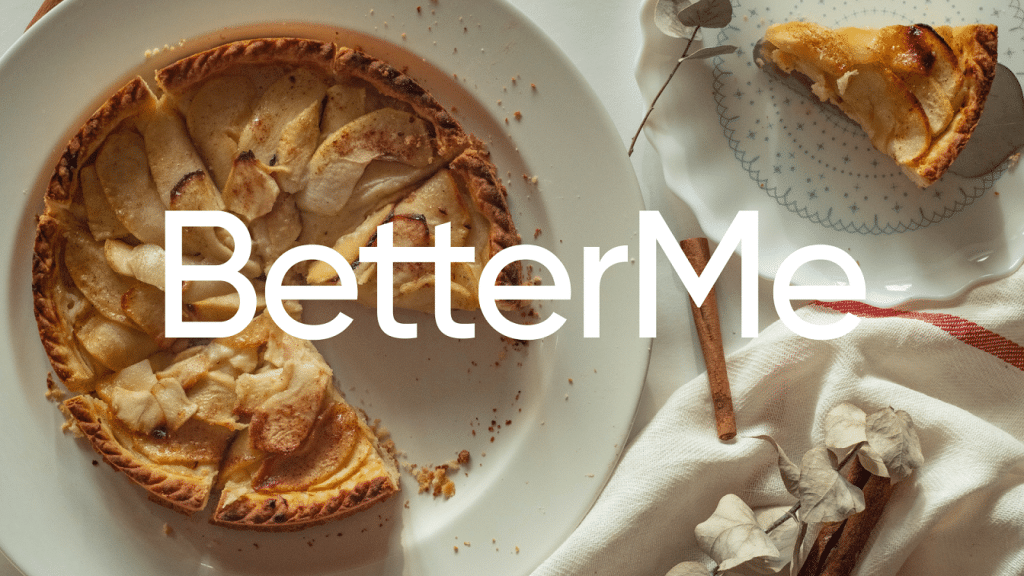
Saturday
- Breakfast: green smoothie
- Snack: nuts
- Lunch: Tuna+cucumbers
- Dinner: Spinach+quinoa cooked in chicken broth
Sunday
- Breakfast: Scrambled egg with bacon
- Snack: vegetables
- Lunch: Avocado, Quinoa, Tomatoes
- Dinner: Steak Lettuce wraps
Additionally
- Drinks: Pure water, tea or coffee without added sugar
- Extra Snacks: raw veggies, larabars, nuts/seeds, or fruits
No-Sugar Diet Snacks
There is no need to starve yourself to lose weight, you can snack during the day to get the feeling of satiety. Choose snacks that are high in protein and/or fiber to help you feel full and satisfied. Here is a list of safe and healthy snacks:
- nuts
- oatmeal
- popcorn
- cheese
- plain Greek yogurt
- eggs
- peanut butter
- veggies
- cereal with milk
- tuna fish
- hummus
- avocado
While snacks can be healthy, you should be especially careful with this type of food. Since snacks are consumed between meals, many people lose control over the amount of snacks they chew. What's more, people often eat snacks when they are bored, which is not something to do on any weight loss diet. So try to eat your snacks when you're really hungry, not just because your favorite show is on and your mouth is feeling lonely. If this is a habit that is still too difficult for you to break, count the portion of snacks you can eat without breaking your diet, put just as much on your plate as is allowed, and don't even try to run to the refrigerator for more.
The Symptoms Of Sugar Withdrawal
Making drastic dietary changes can cause unpleasant symptoms. Sugar detox is not an exception. The symptoms may vary from person to person as it depends on how much sugar you used to consume.
Sugar withdrawal symptoms can last up to two weeks. However, an important point often overlooked is that the longer your body goes without sugar, the easier the adaptation period will be. Make sure to consult with your doctor before starting a diet. Especially in case of any underlying health conditions. Here is the list of possible sugar detox symptoms:
- headache
- anxiety
- dizziness
- nausea
- fatigue
- sleep problems
- concentration problems
- sugar and junk food cravings
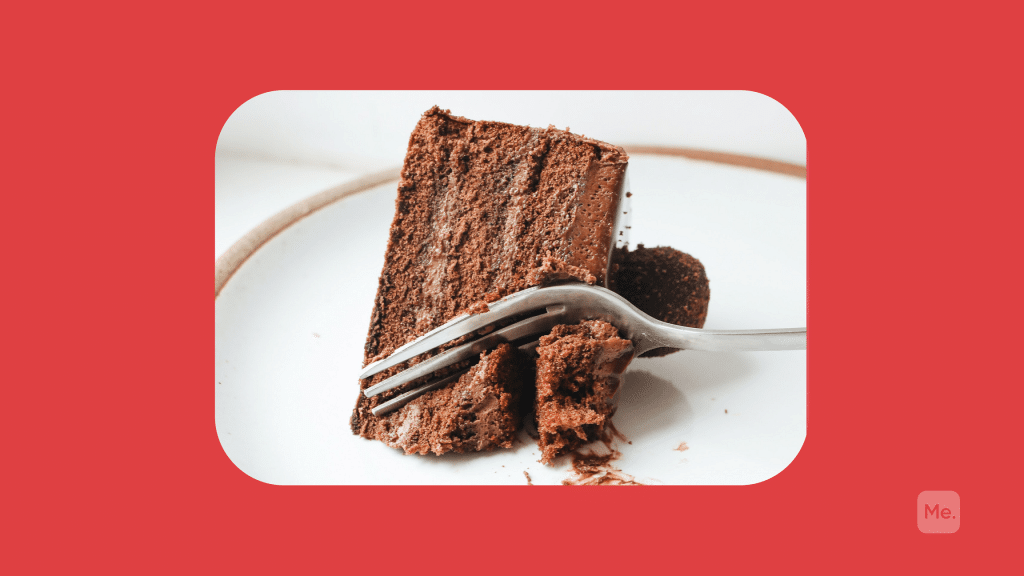
How To Reduce The Side Effects?
Here are some insights on how to manage the sugar detox side effects and make the process easier:
Eat More Protein
It can be fish, poultry, lean meat, high protein vegetables, nuts, and seeds.
Increase Your Dietary Fiber
This way you can reduce hunger pangs (vegetables, beans, and legumes). A high fiber diet yields many health benefits. For example, fiber improves bowel health by reducing the risk of constipation and hemorrhoids. Also, fiber lowers blood pressure, cholesterol, and inflammation. Finally, fiber lowers blood sugar levels by slowing down the absorption of sugar. In particular, consumption of foods containing soluble type of fiber has been associated with a reduced risk of type 2 diabetes. Include foods such as broccoli, carrots, pears, nuts, avocados, and lentils in your no-sugar diet to create a varied and healthy menu.
Drink Plenty Of Pure Water
Water is essential for the normal functioning of human body. Water improves the condition of nails, skin and hair, it improves digestion and lowers blood pressure. What's also important for the no-sugar diet is the fact that water speeds up your metabolism, which increases your chances of building the body you strive for. The recommended water intake (including food containing water) is 2700 ml (90 fl oz) for adult women and 3700 ml (123 fl oz) for adult men.
Avoid Artificial Sweeteners
They encourage sugar cravings.
Avoid Stressful Situations
Stress leads to the increase in sugar cravings. I f you do feel anxious and stressed, try to incorporate stress-relieving practices such as meditation and yoga into your life. Reducing stress levels is very important for both successful weight loss and overall physical and mental well-being.
Work Out On A Regular Basis
It will help you reduce stress levels and boost your energy. Plus, exercise burns extra calories and trains your muscles, making your body toned and beautiful. There are different types of workouts out there, and you should create your workout plan taking into account your physical abilities, the amount of time you're ready to dedicate to training, and your goals regarding physical shape. For example, while whole-body workouts are best for weight loss and overall fitness, split workouts tend to work better for more professional trainers. Learn more about the types of workouts for weight loss and their specificities here, and combine the no-sugar diet with a sensible workout plan to achieve the most impressive results.
Get Enough Sleep
Sleep is very important for successful weight loss, and lack of adequate sleep can lead to weight loss plateaus, slow metabolism, and cravings. You should get about 7-9 hours of sleep per day to slim down smoothly and avoid fatigue and tiredness on a no-sugar diet.
FAQs
Does No – Sugar Diet Include Fruit s ?
Before starting a sugar-free diet, it's important to decide whether you want to eliminate natural sugars that can occur in fruits and dairy products. Beware, complete elimination of fruits is not a healthy choice as they are rich in essential nutrients, vitamins, antioxidants that help our body ward off illness.
Does No – Sugar Diet Help Lose Weight?
No-sugar diet promotes weight loss. Although this may be true, this diet is not a complete solution for weight loss. To achieve the weight loss goal, it's important to lead a healthy lifestyle that includes a well-balanced nutrition plan and regular exercise. Along with the elimination of added sugar from your diet, it's important to carefully track your daily calorie intake.
What's The Difference Between Natural And Refined Sugars?
Sugar is a simple carbohydrate that is used by our body for energy. Natural sugars can be found in fruits and dairy products. Foods with natural sugar are important for our overall health as they provide essential nutrients, antioxidants, and vitamins.
Usually, refined sugar can be hidden in packaged condiments, dips, salad dressings, deli meat, crackers, flavored yogurt, tomato sauce, and salad dressing. It comes from sugar cane or sugar beets, which are processed to extract the sugar. It's important to limit your consumption of refined sugars as they can lead to severe health problems like obesity, diabetes and heart disease. Not to mention, refined sugar leads to storage store of excess belly fat and weight gain.
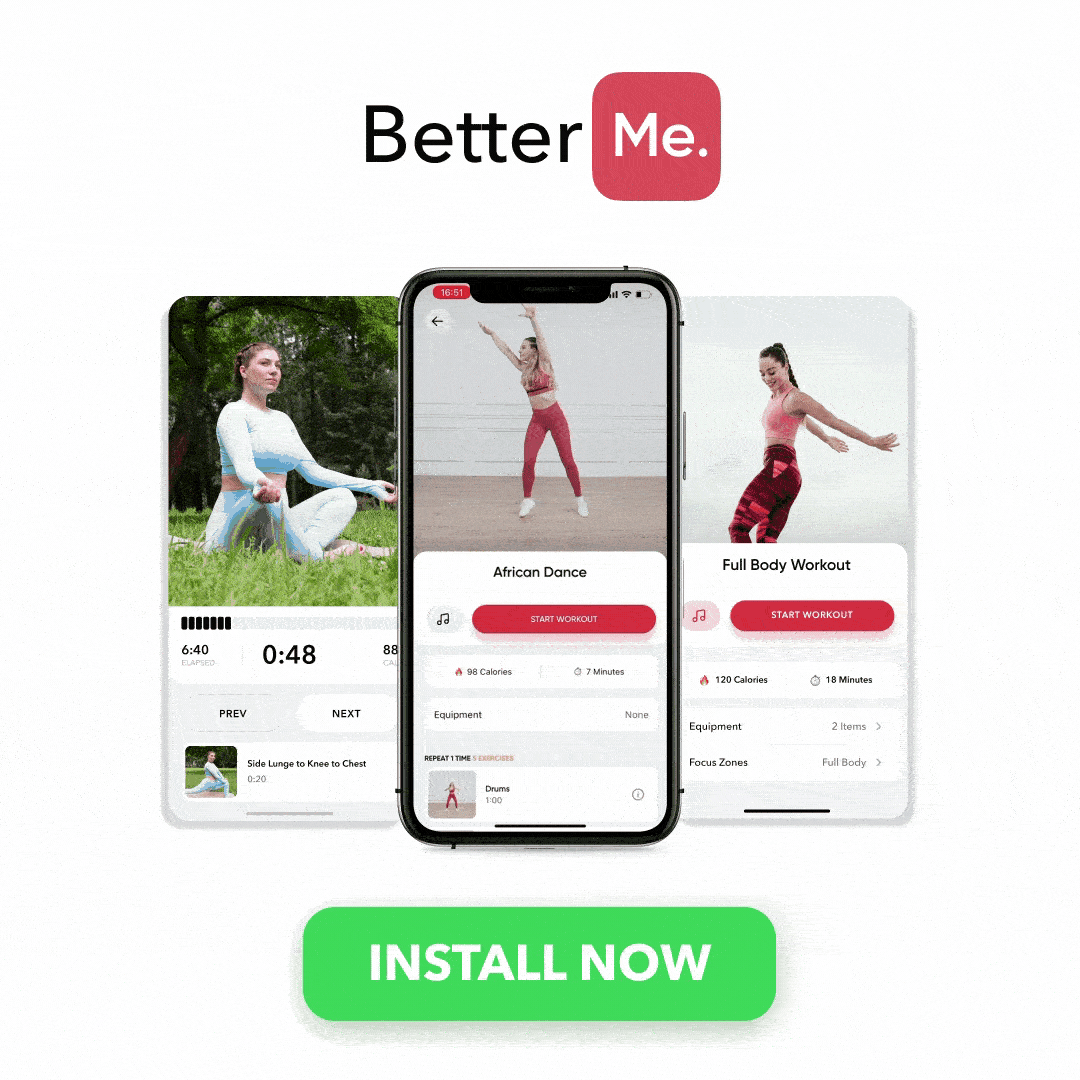
DISCLAIMER:
This article is intended for general informational purposes only and does not address individual circumstances. It is not a substitute for professional advice or help and should not be relied on to make decisions of any kind. A licensed physician should be consulted for diagnosis and treatment of any medical conditions. Any action you take upon the information presented in this article is strictly at your own risk and responsibility!
SOURCES :
- Added Sugar Intake and Cardiovascular Diseases Mortality Among US Adults (2014, jamanetwork.com)
- Diet and Dermatology.The Role of Dietary Intervention in Skin Disease (2019, ncbi.nlm.nih.gov)
- Dietary management of obesity: cornerstones of healthy eating patterns (2018, ncbi.nlm.nih.gov)
- Effect of Dietary Sugar Intake on Biomarkers of Subclinical Inflammation: A Systematic Review and Meta-Analysis of Intervention Studies (2018, ncbi.nlm.nih.gov)
- Factors Affecting Weight & Health (2018, niddk.nih.gov)
- Health and economic benefits of reducing sugar intake in the USA, including effects via non-alcoholic fatty liver disease: a microsimulation model (2017, ncbi.nlm.nih.gov)
- How Sugars and Sweeteners Affect Your Health (2014, newsinhealth.nih.gov)
- Key Elements of Healthy Eating Patterns (2015, health.gov)
- Sugar intake from sweet food and beverages, common mental disorder and depression: prospective findings from the Whitehall II study (2017, ncbi.nlm.nih.gov)
Source: https://betterme.world/articles/no-sugar-diet/
0 Response to "Low Sugar Weight Loss Diet"
Post a Comment